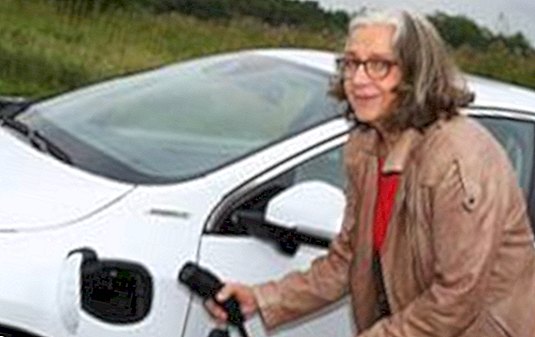Alternative drives: energy turnaround on wheels

What's so special about hybrid and electric cars?

Can fill up with energy, but is not an electric car: the Volvo V60, pre-tested by ChroniquesDuVasteMonde editor Barbara Voigt, will be the first diesel plug-in hybrid in 2012.
The lower CO2 emissions - an environmental benefit, provided the alternative-drive cars are not too big and too heavy. Hybrids have a gasoline or diesel engine that is powered by an electric motor. Electric cars can drive longer distances only electrically.
How many cars with alternative drives already exist?
Of 42 million cars on Germany's roads, 37,200 currently have a hybrid drive such as Toyota Prius, Lexus CT 200h or Honda Jazz. In addition, there are 2300 electric cars on the road such as Mitsubishi i-Miev, Citroën C-Zero or Peugeot iOn. At the beginning of 2012, Nissan Leaf and the E-Smart (Daimler) will follow.
For whom are the alternative drives suitable?
For those who travel mostly short distances - according to surveys, 80 percent of motorists travel less than 60 kilometers per day. Higher ranges also make little sense, because they would greatly increase price and energy consumption. Pioneering spirit should bring buyers: There is little experience with e-mobiles, and questions about technical problems or battery life can not be answered exactly.
Can you save money with alternative drives?
No. Electric and hybrid cars are much more expensive to purchase than comparable models with conventional drive. So you pay for the small electric car C-Zero Citroën after all 35 165 euros, for a comparable C1 with gasoline engine only 11 770 euros. The cause is the time-consuming production of the high-performance battery, which has to store considerably more energy than normal batteries. Although electricity costs less than diesel and gasoline, and hybrids consume less fuel, the higher purchase price is not made up for in the course of a car's life.
How big are the benefits for the environment?
Electric cars are quiet (you only hear the tire rolling noise) and they are emission free. But whether they actually save climate gas in the overall balance, depends on the power source. If the electricity is generated solely by the sun, water or wind, the environmental advantage is considerable. If, on the other hand, it comes from the current German "electricity mix" (coal plus gas plus atom plus regenerative), there is no overall carbon dioxide saving compared to efficient cars with internal combustion engines.
Is there a subsidy from the state for alternative propulsion systems?
Currently in Germany applies for e-mobile (not for hybrids) a five-year motor vehicle tax exemption. Other benefits such as free city parking are under discussion. The Federal Government has so far rejected high purchase premiums, such as those in many countries (in Denmark, for example, up to € 17,500 per car). Above all, it supports research and development.
Where and how is fueled?
Hybrid cars fill up normally diesel or gasoline, electric cars must be charged with electricity, usually after about 100 kilometers. This takes between four and twelve hours on normal sockets. At special charging stations it's faster, but the expensive purchase is not worthwhile (yet) for gas stations. A nationwide public e-filling station network will probably not exist in the foreseeable future. Electricians should therefore preferably have a garage or a carport with a suitable power line and socket. And an open-minded employer who provides a loading option on the company car park.
Where can you try alternative drives?
Here is a small selection of car-sharing projects or rental stations that offer some cars with hybrid or electric motor:
? "Flinkster", car-sharing service of the Deutsche Bahn: E-Flitzer are ready in Hamburg, Berlin, Frankfurt, Saarbrücken, Darmstadt and Aachen; in Berlin also plug-in hybrids. Price example for Darmstadt: from 1.90 euros / hour plus 17 cents / km.
? Pilot project in Hamburg by Greenpeace Energy with car sharing provider Cambio: Mitsubishi i-Miev (100 percent green electricity) for 1.90 euros / hour plus 32 cents / km.
? Europcar: rents the Opel Ampera (Extended Range E-car).










